
In depth
Feminist autonomous infrastructure in the internet battlefield: From Zombies to Ninjas
The Distributed Denial of Women strike borrows the metaphor of the DDOS (distributed denial of service) attack as a radical and subversive tool by activists, but currently DDOS attacks powered by zombie-bots are part of the anarcho-capitalist economies of the internet. Ganesh in their article unpacks the many levels at which gendered labour is extracted, and while positing feminist autonomous…
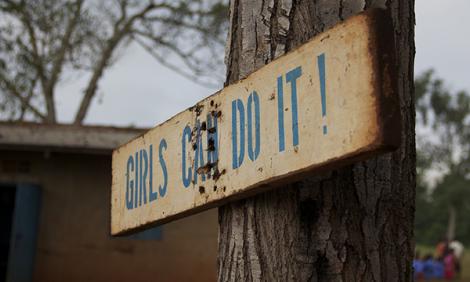
Feminist talk
A painting of an African feminist internet
Addressing the internet gender divide in Africa can only be achieved through the deliberate creation of a feminist internet, and this was affirmed by the Gender and Internet Governance eXchange (gigX) workshop that was held on 10 October 2016 in Durban. We need a feminist internet that works to empower all of us in our diversities, creates equal power relations, and dismantles patriarchy in all…
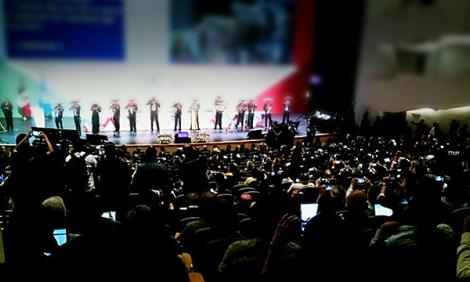
Feminist talk
Defining their place: Gender at the Internet Governance Forum 2016
The Internet Governance Forum has been valuable as a multistakeholder space that facilitates the discussion and dialogue of public policy issues pertaining to the Internet. Over the years several feminists, activists and others interested in diverse representation have been participating in IGF and observing how concerns related to gender, sexuality, and the internet are raised and addressed.…
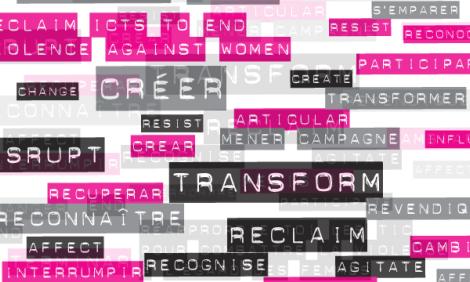
In depth
Technology as lingua franca: Interview with Caroline Tagny
A detailed conversation with activist and writer Caroline Tagny on the various campaigns that she has been part of with Take Back the Tech. The interviewer, Bianca Baldo, focuses on the politics of language in these various campaigns and the importance of content in local language to connect to and bring together people and movements. The role of French as both a language of the colonial…

Feminist talk
[COLUMN] The Gender Binary: Thank you!
The word Impostor keeps coming up every time a trans woman writes about herself. It is there, just below the surface, despite all the estrogen and progesterone, under all the skin-colour foundation and pink lipstick and shiny earrings. It is behind the pads on our breast, cushioning the tender nipples. The feeling, and the word - impostor. We are impostors when we try to be us, and when we try to…
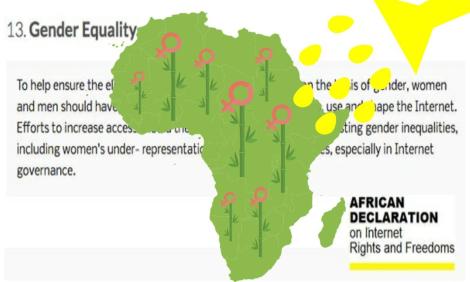
In depth
Feminism online in West and Central Africa: Identities and digital colonisation
This article examines the challenges that women's rights and sexual rights activists face in online feminist organising and participation in internet governance decision-making processes in West and Central Africa. It focuses particularly on linguistic barriers, and the expression of sexual or gender non-conforming identities in a context of digital colonisation in the sub-region.

In depth
Data: The new four-letter word for feminism
The discourse of data in network capitalism has unleashed an ethical crisis of self and society. As the all-pervasive grids of surveillance and big data ideology take over control of social behaviour and democratic politics, women seem to be increasingly disciplined by state authority and neoliberal capital alike. Can feminism offer a way out?
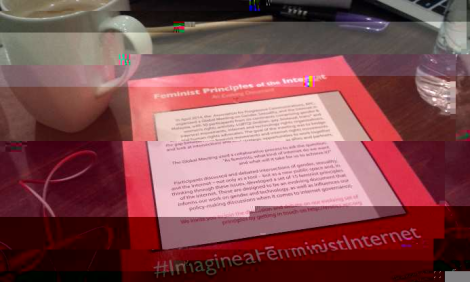
Editorial
[EDITORIAL] Feminist Principles of the Internet: Two years later
Two years after
the initial birth of the Feminist Principles of the Internet, Dhyta helps us frame this edition where we see how feminists put the principles into practice in their own contexts. “As an evolving document, we need to constantly revisit it to make sure that it stays relevant, or else we should clarify, revise or even change it in accordance with the new circumstances and our needs…

Three key issues for a feminist internet: Access, agency and movements
The Feminist Principles of the Internet arose from the first Imagine a Feminist Internet meeting in 2014 in Malaysia. The meeting brought together 52 women's rights, sexual rights and internet rights activists from six continents to discuss one question: "As feminists, what kind of internet do we want, and what will it take for us to achieve it?" The principles cover the topics of access, agency…
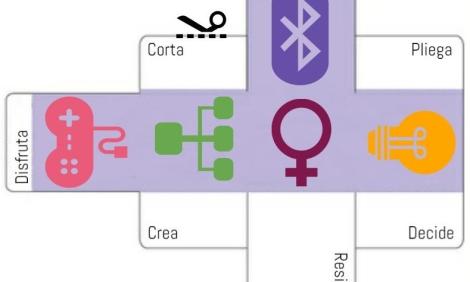
In depth
The Do-It-Yourself Feminist Internet: Cyber feminist actions from Latin America
Informed by resistance, dissident identities, intersectional approaches, issues of sexuality and universal access to the internet, we seek a collective answer to the question: Is a feminist internet possible? This reflection is a joint undertaking with Latin American women activists advocating freer and more equitable technologies and working to saturate the net with feminist content and…




